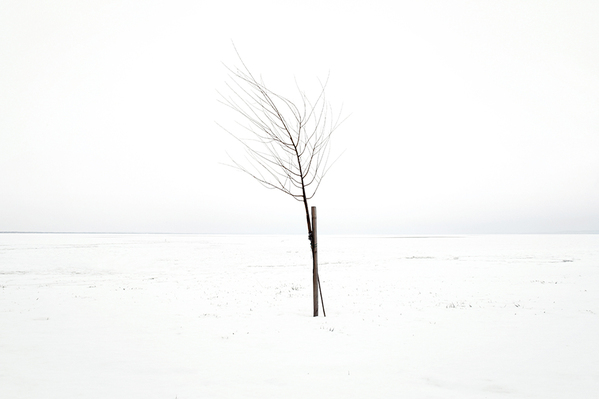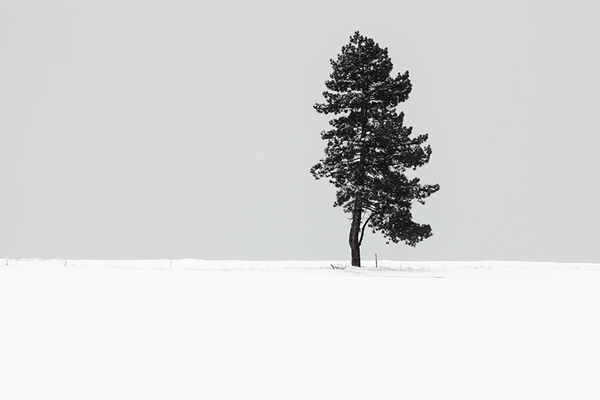
'Engrossed with contrivances'
“Professor Butts and the Self-Operating Napkin” (1931), by Rube Goldberg (1883-1970). Soup spoon (A) is raised to mouth, pulling string (B) and thereby jerking ladle (C), which throws cracker (D) past toucan (E). Toucan jumps after cracker and perch (F) tilts, upsetting seeds (G) into pail (H). Extra weight in pail pulls cord (I), which opens and ignites lighter (J), setting off skyrocket (K), which causes sickle (L) to cut string (M), allowing pendulum with attached napkin to swing back and forth, thereby wiping chin.
Goldberg was an American cartoonist, sculptor, author, engineer and inventor best known for his popular cartoons depicting complicated gadgets performing simple tasks in indirect, convoluted ways.
“We are swallowed up in schemes for gain and engrossed with contrivances for bodily enjoyments, as if this particle of dust were immortal —- as if the soul needed no aliment, and the mind no raiment.’’
— Henry Wadsworth Longfellow (1807-1882), American poet, translator and literature professor at Harvard. He was a native of Portland, Maine
Love letter to Portland
Cruise ships in Portland. Below, Portland art walk (photo by Bd2media
Often I think of the beautiful town
That is seated by the sea;
Often in thought go up and down
The pleasant streets of that dear old town,
And my youth comes back to me.
And a verse of a Lapland song
Is haunting my memory still:
"A boy's will is the wind's will,
And the thoughts of youth are long, long thoughts."
I can see the shadowy lines of its trees,
And catch, in sudden gleams,
The sheen of the far-surrounding seas,
And islands that were the Hesperides
Of all my boyish dreams.
And the burden of that old song,
It murmurs and whispers still:
"A boy's will is the wind's will,
And the thoughts of youth are long, long thoughts."
I remember the black wharves and the slips,
And the sea-tides tossing free;
And Spanish sailors with bearded lips,
And the beauty and mystery of the ships,
And the magic of the sea.
And the voice of that wayward song
Is singing and saying still:
"A boy's will is the wind's will,
And the thoughts of youth are long, long thoughts."
I remember the bulwarks by the shore,
And the fort upon the hill;
The sunrise gun, with its hollow roar,
The drum-beat repeated o'er and o'er,
And the bugle wild and shrill.
And the music of that old song
Throbs in my memory still:
"A boy's will is the wind's will,
And the thoughts of youth are long, long thoughts."
I remember the sea-fight far away,
How it thundered o'er the tide!
And the dead captains, as they lay
In their graves, o'erlooking the tranquil bay,
Where they in battle died.
And the sound of that mournful song
Goes through me with a thrill:
"A boy's will is the wind's will,
And the thoughts of youth are long, long thoughts."
I can see the breezy dome of groves,
The shadows of Deering's Woods;
And the friendships old and the early loves
Come back with a Sabbath sound, as of doves
In quiet neighborhoods.
And the verse of that sweet old song,
It flutters and murmurs still:
"A boy's will is the wind's will,
And the thoughts of youth are long, long thoughts."
I remember the gleams and glooms that dart
Across the school-boy's brain;
The song and the silence in the heart,
That in part are prophecies, and in part
Are longings wild and vain.
And the voice of that fitful song
Sings on, and is never still:
"A boy's will is the wind's will,
And the thoughts of youth are long, long thoughts."
There are things of which I may not speak;
There are dreams that cannot die;
There are thoughts that make the strong heart weak,
And bring a pallor into the cheek,
And a mist before the eye.
And the words of that fatal song
Come over me like a chill:
"A boy's will is the wind's will,
And the thoughts of youth are long, long thoughts."
Strange to me now are the forms I meet
When I visit the dear old town;
But the native air is pure and sweet,
And the trees that o'ershadow each well-known street,
As they balance up and down,
Are singing the beautiful song,
Are sighing and whispering still:
"A boy's will is the wind's will,
And the thoughts of youth are long, long thoughts."
And Deering's Woods are fresh and fair,
And with joy that is almost pain
My heart goes back to wander there,
And among the dreams of the days that were,
I find my lost youth again.
And the strange and beautiful song,
The groves are repeating it still:
"A boy's will is the wind's will,
And the thoughts of youth are long, long thoughts."
“My Lost Youth,’’ by Henry Wadsworth Longfellow (1807-1882). The poem is about, among other things, his hometown, Portland, Maine, which in the past couple of decades has become a very popular and hip place for tourists to visit, as well as for Millennials to move to. There are lots of working artists there.
Portland’s Longfellow Square (named for the artist) soon after the turn of the 20th Century.
It comes and it goes
The tide rises, the tide falls,
The twilight darkens, the curlew calls;
Along the sea-sands damp and brown
The traveller hastens toward the town,
And the tide rises, the tide falls.
Darkness settles on roofs and walls,
But the sea, the sea in darkness calls;
The little waves, with their soft, white hands,
Efface the footprints in the sands,
And the tide rises, the tide falls.
The morning breaks; the steeds in their stalls
Stamp and neigh, as the hostler calls;
The day returns, but nevermore
Returns the traveller to the shore,
And the tide rises, the tide falls.
“The Tide Rises, the Tide Falls,’’ by Henry Wadsworth Longfellow (1807-1882). In his time, Longfellow was by far the best known New England poet.
‘A chant sublime’
“I heard the bells on Christmas Day
Their old, familiar carols play,
And wild and sweet
The words repeat
Of peace on earth, good-will to men!
And thought how, as the day had come,
The belfries of all Christendom
Had rolled along
The unbroken song
Of peace on earth, good-will to men!
Till, ringing, singing on its way,
The world revolved from night to day
A voice, a chime,
A chant sublime
Of peace on earth, good-will to men!
Then from each black, accursed mouth,
The cannon thundered in the South,
And with the sound
The carols drowned
Of peace on earth, good-will to men!
It was as if an earthquake rent
The hearth-stones of a continent,
And made forlorn
The households born
Of peace on earth, good-will to men!
And in despair I bowed my head;
'There is no peace on earth,’ I said ;
‘For hate is strong
And mocks the song
Of peace on earth, good-will to men!’
Then pealed the bells more loud and deep:
’God is not dead; nor doth he sleep!
The Wrong shall fail,
The Right prevail,
With peace on earth, good-will to men!"‘
— “Christmas Bells,’’ by the New England poet Henry Wadsworth Longfellow. It was written in 1863, during the Civil War, and first published in 1865.
Oh, yeah, spring again
"If Spring came but once in a century, instead of once a year, or burst forth with the sound of an earthquake, and not in silence, what wonder and expectation there would be in all hearts to behold the miraculous change! But now the silent succession suggests nothing but necessity. To most men only the cessation of the miracle would be miraculous and the perpetual exercise of God's power seems less wonderful than its withdrawal would be."
-- Henry Wadsworth Longfellow.
It only looks dead
"The day is ending,
The night is descending;
The marsh is frozen,
The river dead.
"Through clouds like ashes
The red sun flashes
On village windows
That glimmer red."
-- Henry Wadsworth Longfellow, "Afternoon in February''











